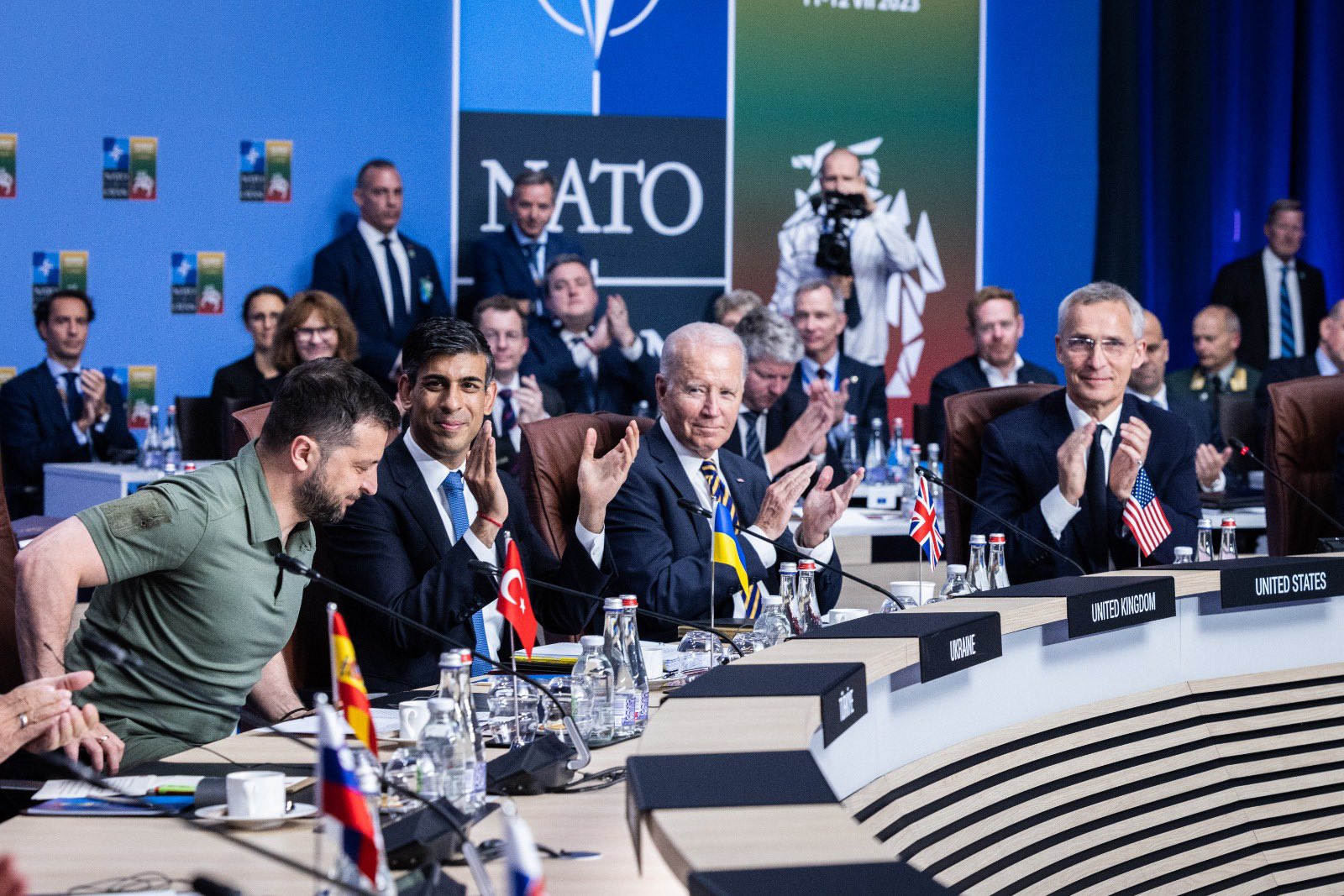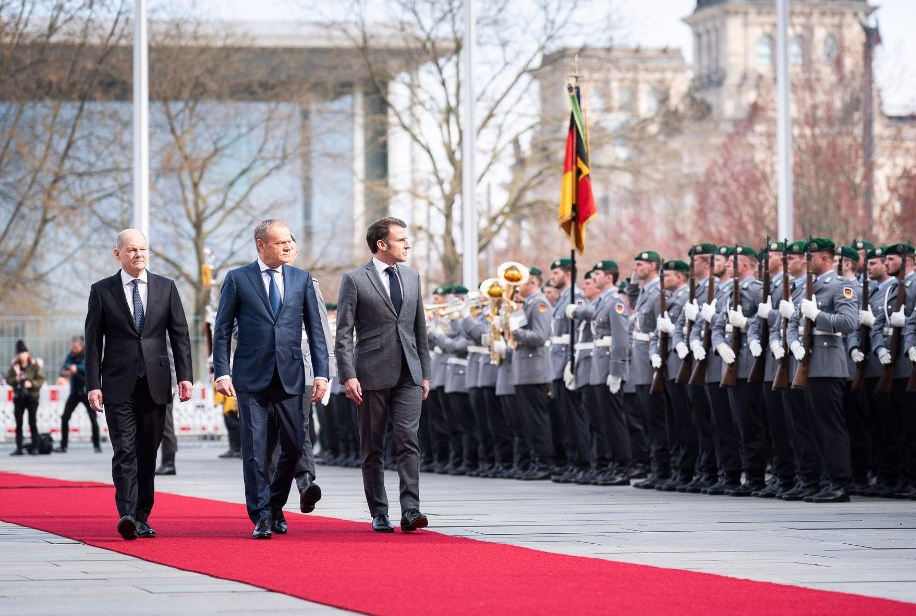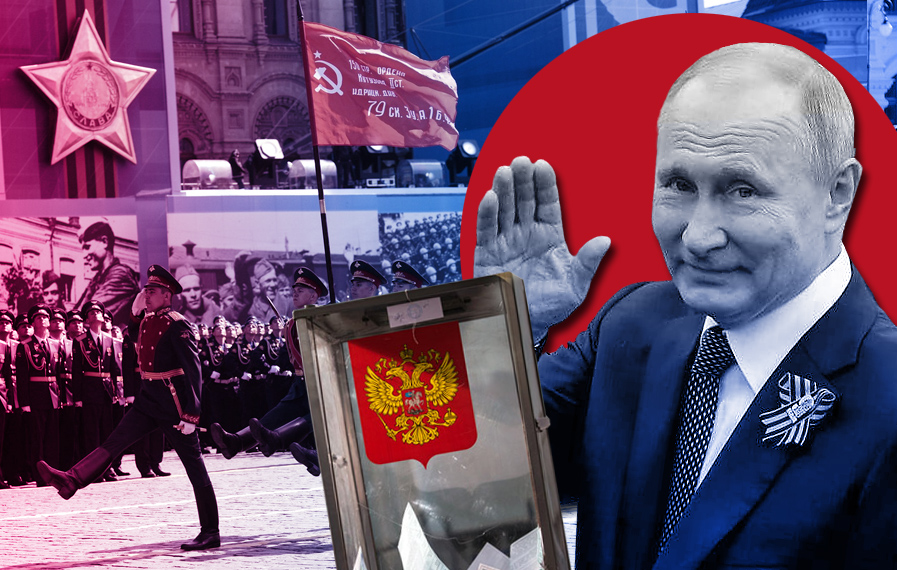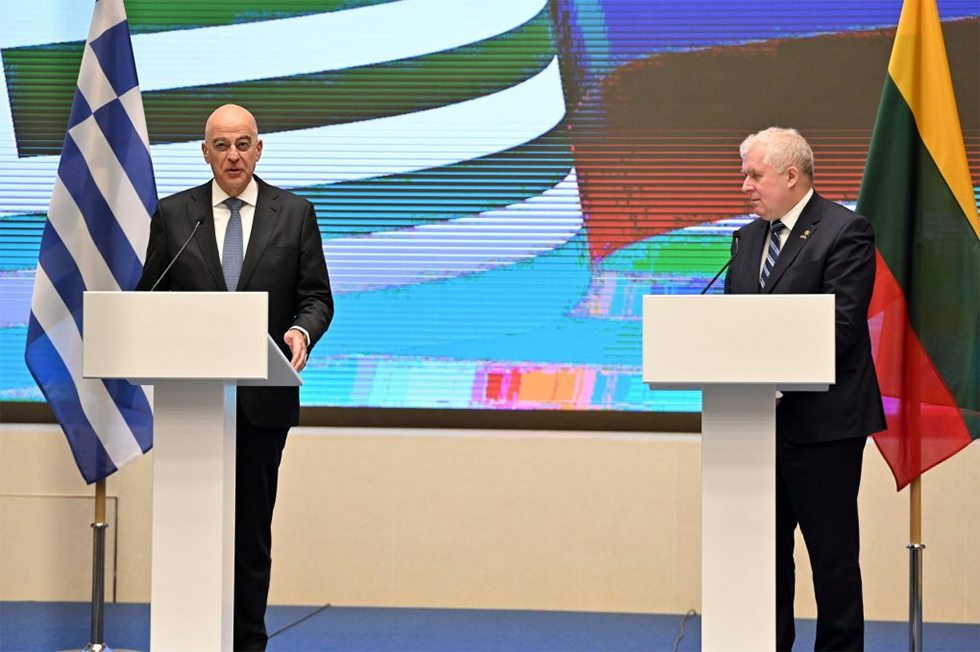The NATO Summit in Vilnius has exceeded expectations in Kyiv, although not entirely in the way anticipated. Volodymyr Zelensky has emerged as one of the heroes of the summit, but he is not the sole protagonist.
“Ukraine will become a NATO member” – this refrain echoed throughout the capital of Lithuania, whose residents demonstrated unwavering support for Ukraine and its Euro-Atlantic aspirations. However, it was not the citizens of Lithuania who decided on the invitation to the Alliance. It was the leaders of the 31 NATO member countries, who convened at the LitEXPO complex. They had their own reasons for shaping their stance on Ukraine. Here is a simple summary from NATO Secretary-General Jens Stoltenberg: “We agreed to enhance deterrence and defense, invest more in defense, bring Ukraine closer to NATO membership, and deepen our partnership worldwide. We stand united like never before.”
Fear Dominated the Summit
It is now evident that the North Atlantic Alliance remains committed to assisting Ukraine. However, formalizing its membership in the foreseeable future is not yet a possibility. The rejection of the Membership Action Plan (MAP) as a precondition for joining the Alliance is a significant gesture. It substantially reduces the list of formal and informal conditions for Ukraine’s accession. However, the abandonment of the MAP does not establish any timeline for Ukraine’s NATO membership.
It is akin to receiving a plane ticket without a specified travel date. There may be someone, somewhere who can fill in the year, month, and even the day, but the identity of that person remains unknown. Still unknown.
Why the hesitations in Brussels regarding Kyiv?
Two factors converged: first, Ukraine’s insufficient level of reform. Corruption and institutional weaknesses in Ukraine are topics seldom left untouched, except by the laziest of journalists. But these circumstances, real or fabricated, have not hindered Kyiv’s effective resistance against Russian aggression.
However, given that the conflict is ongoing, the NATO establishment is reluctant to accept Ukraine into its ranks while it is at war with Russia. Why? For instance, such a scenario, if realized, would entail the defeat of NATO leaders in subsequent elections. Political opponents of current presidents and prime ministers are unlikely to miss the opportunity to tell voters about the “suicidal” involvement of the Alliance in a war with Russia.
To envision how this might unfold, one only needs to observe how Donald Trump condemned the Biden administration for supplying cluster munitions to Ukraine. “Joe Biden should not drag us further into World War III by sending cluster munitions to Ukraine,” Trump proclaimed during his speech on July 11. Although, in 2017, Trump’s Defense Secretary, General Jim Mattis, reversed the Obama-era policy, which aimed to phase out the use of most cluster bombs by the United States by 2018.
The Homework that Lies Ahead
Since immediate NATO membership for Ukraine is not feasible, leaders of the key NATO countries have found an alternative instrument. They have announced the G7 declaration, promising support for Ukraine through the provision of weapons, military training, and financial assistance in exchange for necessary reforms, essential for Euro-Atlantic (and European) integration.
“Today we initiate discussions with Ukraine to formalize, through bilateral commitments on security and arrangements compatible with this multilateral framework, in accordance with our respective legislative and constitutional requirements, our enduring support for Ukraine, as it defends its sovereignty and territorial integrity,” stated the G7 declaration.
This formulation allows for supporting Ukraine, exerting pressure on its leadership for democratic reforms, while still maintaining the political face of the Kremlin. Moscow can tell Russian citizens that “NATO did not pass” without even attempting to go in the direction of Ukraine.
Kyiv learned an unpleasant lesson in modern realpolitik, where democracy as a procedure proved more significant to the West than the heavy losses suffered by Ukraine. However, it is fair to remind that numerous ambitious Euro-Atlantic declarations from official Kyiv were not supported by concrete steps to strengthen the country’s internal unity. In some cases, the appointments of Ukrainian authorities ahead of the Vilnius summit seemed quite controversial.
Photo: Rishi Sunak(on the left) and Volodymyr Zelensky. Source: Rishi Sunak Twitter
Even the exchange of remarks between the UK Defense Secretary Ben Wallace, who asked Ukraine to be more tactful in requests for weapon supplies, and Volodymyr Zelensky appeared too sharp compared to the dialogue between the West and Ukraine. Yet, on the other hand, Wallace’s attempt to edify a country that pays with the blood of its citizens for global European security seems equally controversial.
This controversy was ultimately leveled out by a tweet from Prime Minister Rishi Sunak in the evening of July 12: “Third, the United Kingdom continues to lead in supporting Ukraine, including:
* More combat vehicles for Ukrainian forces.
* Thousands of additional ammunition for Challenger 2.
* Training for Ukrainian pilots starting next month.”
Results and Outcomes
Nevertheless, Ukraine has no grounds to claim the destruction of its expectations at the Vilnius summit. The Ukraine-NATO Council has been established to enable more proactive responses to global challenges. The Alliance allocates $500 million annually for the training of Ukrainian military personnel. Eleven NATO countries have announced that they will start training Ukrainian pilots for F-16 jets from August, giving Kyiv reason to expect the delivery of this equipment in the coming months. France has declared the transfer of long-range SCALP missiles to Ukraine, Germany – two Patriot complexes and batches of armored vehicles. Ukraine’s capabilities to counter Russia have increased, and this is the most significant outcome of the summit today, although it is a tactical rather than strategic outcome.
However, discussions in Vilnius were not solely about Ukraine. Turkish President Recep Tayyip Erdogan informed Joseph Biden that he no longer has objections to Sweden’s accession to NATO. It is likely that in the autumn, the parliaments of Turkey and Hungary (which also objected to Sweden’s accession) will support the decision to admit Sweden, which will become the 32nd member of the Alliance by the end of 2023. It seems that under the guise of active discussions on Ukraine’s fate, NATO officials managed to ensure another expansion of the Alliance. This category of actions also includes the signing of the Enhanced Partnership Program between NATO and Japan, which allows for the Alliance’s future involvement in countering China directly near its shores.
Source: The Gaze


